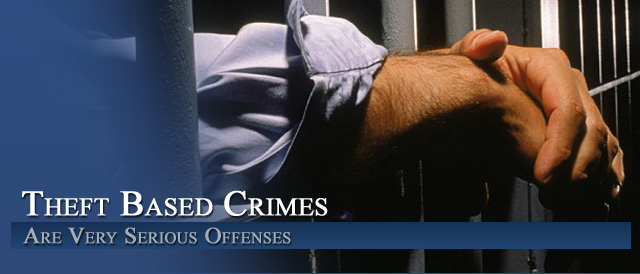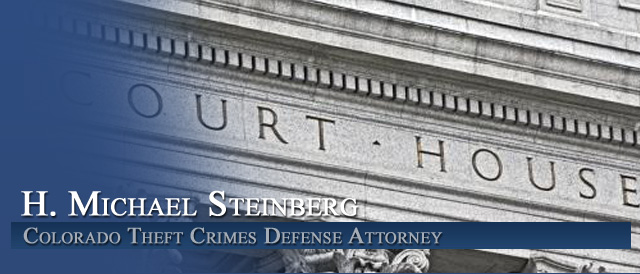




Shocker – Colorado Police Can Legally Lie To You – Colorado Criminal Law
By H. Michael Steinberg Colorado Criminal Defense Attorney – Lawyer
Shocker – Colorado Police Can Legally Lie To You – Colorado Criminal Law – One of the most common misconceptions by the public when it comes to the police is that the police have to tell you the truth when asked.
Actually nothing could be farther from the truth.
A police officer – undercover or not – even when asked a direct question in most cases – is under no legal obligation to tell you the truth.
The seminal case in this area is old. The United States Supreme Court held in Frazier v. Cupp, 394 U.S. 731, 1969 that police officers are permitted to lie during an investigation as long as it:
…does not shock the conscience of the court or community.
In Frazier v. Cupp the officers told a suspect in a homicide investigation that the accomplice in the case “snitched him out” in order to trick the suspect into a confession. This case and the analysis below – supports the advice I have always urged upon my clients – SAY NOTHING – EVER – LAWYER UP (ask for a lawyer) if you are questioned beyond your name.
If you say nothing – you cannot be manipulated into saying or doing anything that could hurt your defense.
The Fifth Amendment And Due Process – Coerced Confessions In Colorado
Colorado and United States Constitutional law protect you against coerced confessions. This right is founded upon the Fifth Amendment privilege against self-incrimination and the due-process prohibition against admitting involuntary confessions into court.
Whether a confession or other incriminating statement can be used against you at trial is – well – complex. While the police were long ago been banned from using physical force on a suspect to obtain a confession – today they will often use “tactics” to get a confession from a suspect.
These tactics include a “myriad” of powerful and effective psychological ploys – examples include:
- Falsely claiming that a suspect’s confederate confessed when in fact he had not.
- Falsely claiming to have found a suspect’s fingerprints at a crime scene when there were none
- Falsely stating that incriminating DNA evidence and satellite photography of the crime scene exist.
Are There Limits On These Deceptive Interrogation Practices?
Determinations of when the police have “crossed the line” in the questioning of a suspect are almost always “fact specific.” This is an area of the law that is NOT governed by an overarching bright-line rule, but rather is an area of law that requires a fact-intensive analysis.
There are, however some basic general concepts. One example of a line that cannot be crossed is a misrepresentation by the police of a suspects legal rights – such as telling the suspect that his or her incriminating statements will not be used to charge the suspect when they are used for that very purpose.
Law enforcement likes to call this area of the law “strategic deception.” The Colorado Courts have focused the legal inquiry when there is a case of strategic deception on whether a confession or other incriminating statement was voluntary or involuntary.
Under Colorado law “involuntary confessions” must be excluded under the Due Process Clause.
What Then Is An Involuntary Confession Under Colorado Law?
For a confession or inculpatory statement to be involuntary, police coercion must have played a significant role in obtaining or in inducing the statement.
For a confession to be involuntary there must be a “substantial element of coercive police conduct.
The inquiry is whether defendant’s will was overborne by physically or mentally coercive government conduct.
The “causal connection” between police misconduct and a defendant’s confession must be clear ..the Courts use an approach that does not focus on any one factor but analyzes the “totality of the circumstances” surrounding the actions of the police.
Using this analysis, so called “threats and promises” used by an interrogator “factor” into the analysis of voluntariness but even threats and/or promises are not conclusive. Here is what the Colorado Courts have said on this issue:
For such threats and promises to render a confession involuntary, they must have caused the defendant to confess, for example, where police have promised leniency in exchange for a confession or have threatened harmful consequences unless the defendant confesses.
There must be a “causal connection” between the “abrasive demeanor” of the interrogator and the a Defendant’s confession for it to be involuntary.
Other FACTORS OF VOLUNTARINESS include:
whether the defendant was in custody or was free to leave and was aware of his situation;
whether Miranda warnings were given prior to any interrogation and whether the defendant understood and waived his Miranda rights;
whether the defendant had the opportunity to confer with counsel or anyone else prior to the interrogation;
whether the challenged statement was made during the course of an interrogation or instead was volunteered;
whether any overt or implied threat or promise was directed to the defendant;
the method and style employed by the interrogator in questioning the defendant and the length and place of the interrogation;
and the defendant’s mental and physical condition immediately prior to and during the interrogation,
the defendant’s educational background, employment status, and prior experience with law enforcement and the criminal justice system.
An interrogator’s conduct must play such a significant a role in the defendant’s confession or inculpatory statements that the defendant’s will must have been “overborn.” This is a very high standard. Only if there is a showing that the defendant’s will was overcome a defendant’s statement found to be “constitutionally involuntary.”
Some of the techniques found to have been “suspect” under Colorado law include:
(1) referring to charges that the defendant might face if not cleared;
(2) minimizing the seriousness and extent of the defendant’s culpability if he confessed;
(3) telling the defendant that he could not talk to his girlfriend unless he confessed;
(4) employing a “Mutt and Jeff” tactic in which one officer berated the defendant while another reassured and complimented him; and
(5) making false representations regarding their knowledge of the evidence and asserting the defendant was obviously guilty.
In one Colorado case involving misrepresenting the existence of fingerprint evidence a Colorado Court held:
While we do not condone the detective’s conduct in misrepresenting the scope of the charges defendant faced and the extent of his knowledge concerning fingerprint evidence, this conduct nevertheless does not compel a conclusion that defendant’s statement was involuntary.
What About The Colorado Entrapment Defense?
A successful use of the entrapment defense under Colorado law is difficult to say the least.
We have so far established that the police may not coerce a person into a confession. Now we add this: the police cannot coerce a person into committing an offense that he/she was not “predisposed” to committing.
The “affirmative” defense of entrapment is alleged at a trial when the accused is:
induced or persuaded by law enforcement to commit a crime that he had no previous intent to commit.
If the Trial Judge finds the accused has met the minimal burden of proof to raise the defense – then the burden of proof shifts to the prosecution to DISPROVE the entrapment defense beyond a reasonable doubt.
If there is reasonable doubt as to whether the Defendant had an intent to commit the crime “but for” the inducement or persuasion by the police, then the jury must acquit the Defendant and find that person not guilty of the crime charged.
Having said that – an entrapment defense is still very difficult to make out as to prevail it must be also be established that the idea for committing the crime originated with law enforcement and not the person accused of the crime. AND it must also be shown that law enforcement persuaded the person into committing the crime and that the accused was not ready and willing to commit the crime before law enforcement made contact.
See my article on the entrapment defense.
Shocker – Colorado Police Can Legally Lie To You – Colorado Criminal Law
If you found any of the information I have provided on this web page article helpful please click my Plus+1 or the Share buttons for Twitter and Facebook below so that others may also find it.
If, after reading this article, you have questions about your case and would like to consider retaining our law firm, we invite you to contact us at the Steinberg Colorado Criminal Defense Law Firm – 303-627-7777.
Never stop fighting – never stop believing in yourself and your right to due process of law. You will not be alone in court, H. Michael at your side every step of the way – advocating for justice and the best possible result in your case.
 ABOUT THE AUTHOR: H. Michael Steinberg – Email The Author at [email protected] – A Denver Colorado Criminal Defense Lawyer – or call his office at 303-627-7777 during business hours – or call his cell if you cannot wait and need his immediate assistance – 720-220-2277. Attorney H. Michael Steinberg is passionate about criminal defense. His extensive knowledge and experience of Colorado Criminal Law gives him the edge you need to properly handle your case.
ABOUT THE AUTHOR: H. Michael Steinberg – Email The Author at [email protected] – A Denver Colorado Criminal Defense Lawyer – or call his office at 303-627-7777 during business hours – or call his cell if you cannot wait and need his immediate assistance – 720-220-2277. Attorney H. Michael Steinberg is passionate about criminal defense. His extensive knowledge and experience of Colorado Criminal Law gives him the edge you need to properly handle your case.
“A good criminal defense lawyer is someone who devotes themselves to their client’s case from beginning to end, always realizing that this case is the most important thing in that client’s life.”
You should be careful to make a responsible choice in selecting a Colorado Criminal Defense Lawyer – and we encourage you to “vet” our firm. Over the last 40 plus years – by focusing ONLY on Colorado criminal law – H. Michael has had the necessary time to commit to the task of constantly updating himself on nearly every area of criminal law, to include Colorado criminal law and procedure and trial and courtroom practice. H. Michael works hard to get his clients the best possible results in and out of the courtroom. He has written, and continues to write, extensively on Colorado criminal law and he hopes this article helps you in some small way – Shocker – Colorado Police Can Legally Lie To You – Colorado Criminal Law.

Other Articles of Interest:
- Colorado Expands Mandatory Reporting Law To Cover The Elderly In 2014
- A Denver Colorado Criminal Lawyer Warns – NEVER Agree To Speak To The Police – But If You Do…
- Attorney Profile
- Colorado Criminal Theft Law – How Do They Prove Value?
- Colorado Shoplifting Laws And Common Defenses To Colorado Shoplifting Crimes Part I of II













